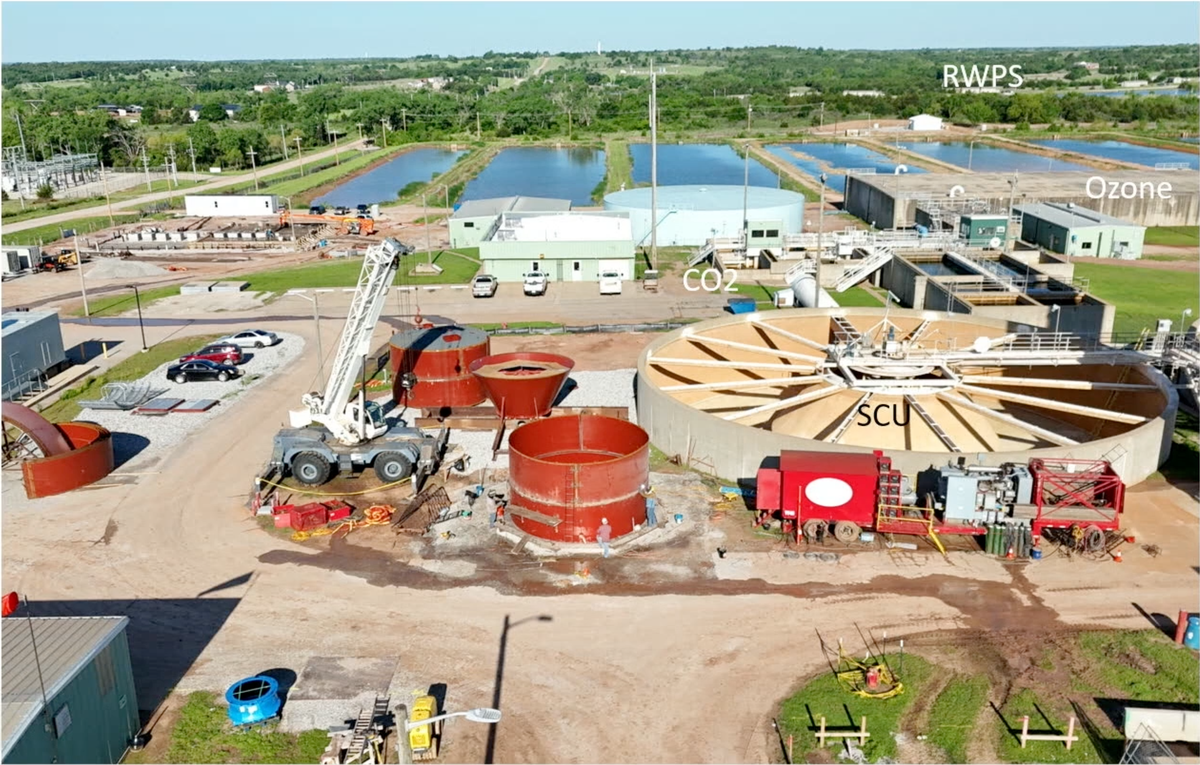

The City of Stillwater is moving forward with a $210 million comprehensive water infrastructure improvement plan that includes significant upgrades to the water treatment plant and construction of a new pipeline to Lake McMurtry.
During the May 19 Stillwater Utilities Authority meeting, city staff presented updates on several high-priority water projects already underway and outlined future improvements needed to ensure water security for the growing community.
"McMurtry is as important to us today as Kaw was in 1975 when that group was making those approvals," said Candy Staring, Director of Engineering, who is retiring at the end of the month. "And today when we're setting this up, it's just as critical."
The plan includes three high-priority projects: a new finished water pump station, chemical systems upgrades, and a secondary water source pipeline to Lake McMurtry.
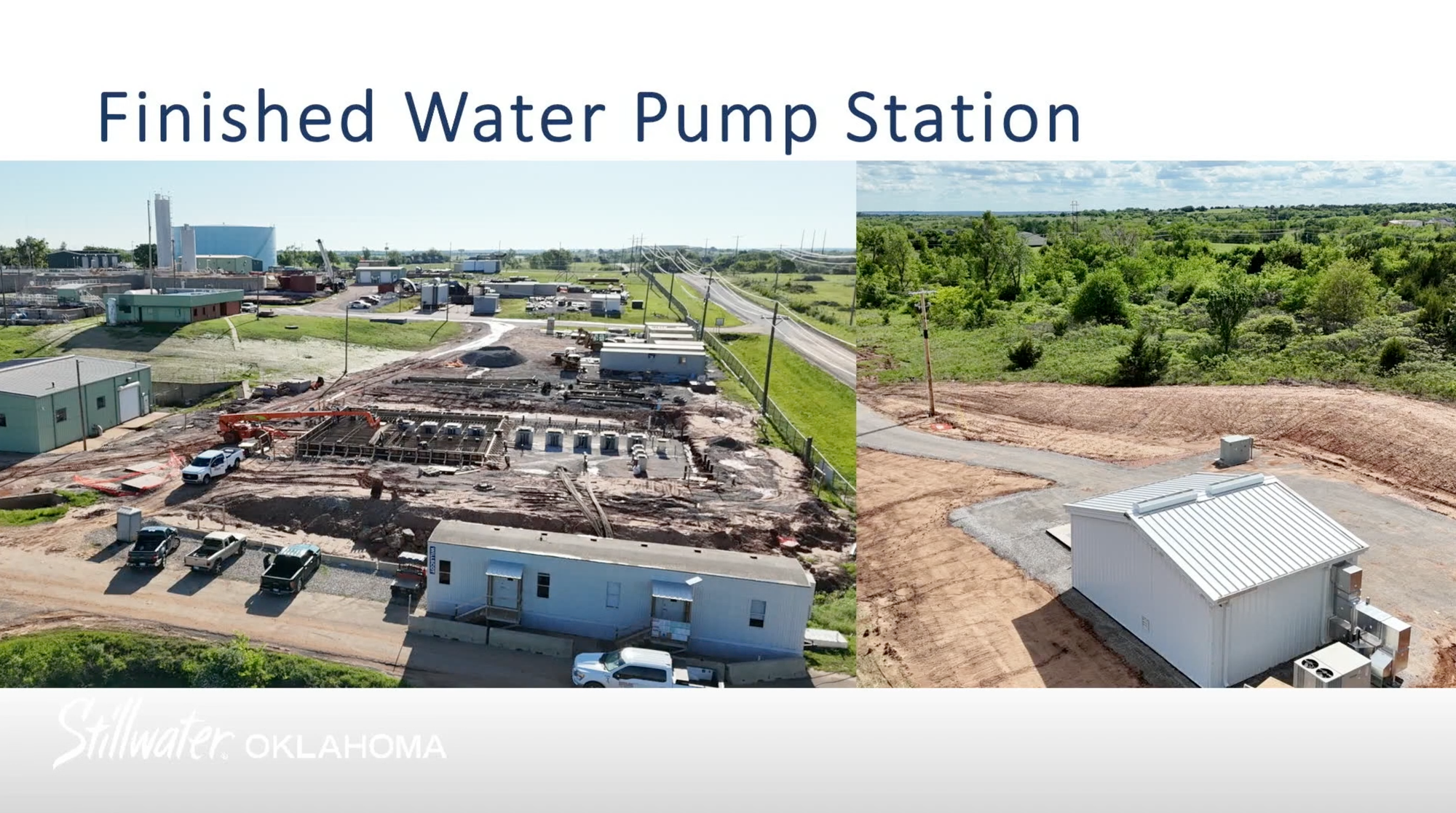
Chris Humes, Senior Project Manager, explained that the finished water pump station project, which began about a year ago, is approximately 50% complete and on budget at $30 million. The station is designed to distribute treated water to three pressure zones in the city.
"We're thinking of the future all the time. We're actually building this one for 24 million gallons per day and then making accommodations for 30 million gallons per day just because it's cost effective to do it now," Humes said.
The chemicals project, which began earlier this year, includes replacing systems installed in the early 1980s. This project touches multiple aspects of water treatment, including CO2 and lime systems, ozone disinfection, and chlorine treatment. The project is about 10% complete by dollars spent.
Perhaps the most significant component of the plan is the Lake McMurtry pipeline project, which will provide a secondary water source for Stillwater. Currently, the city relies solely on Kaw Lake through a 36-inch steel pipeline built in the early 1980s.
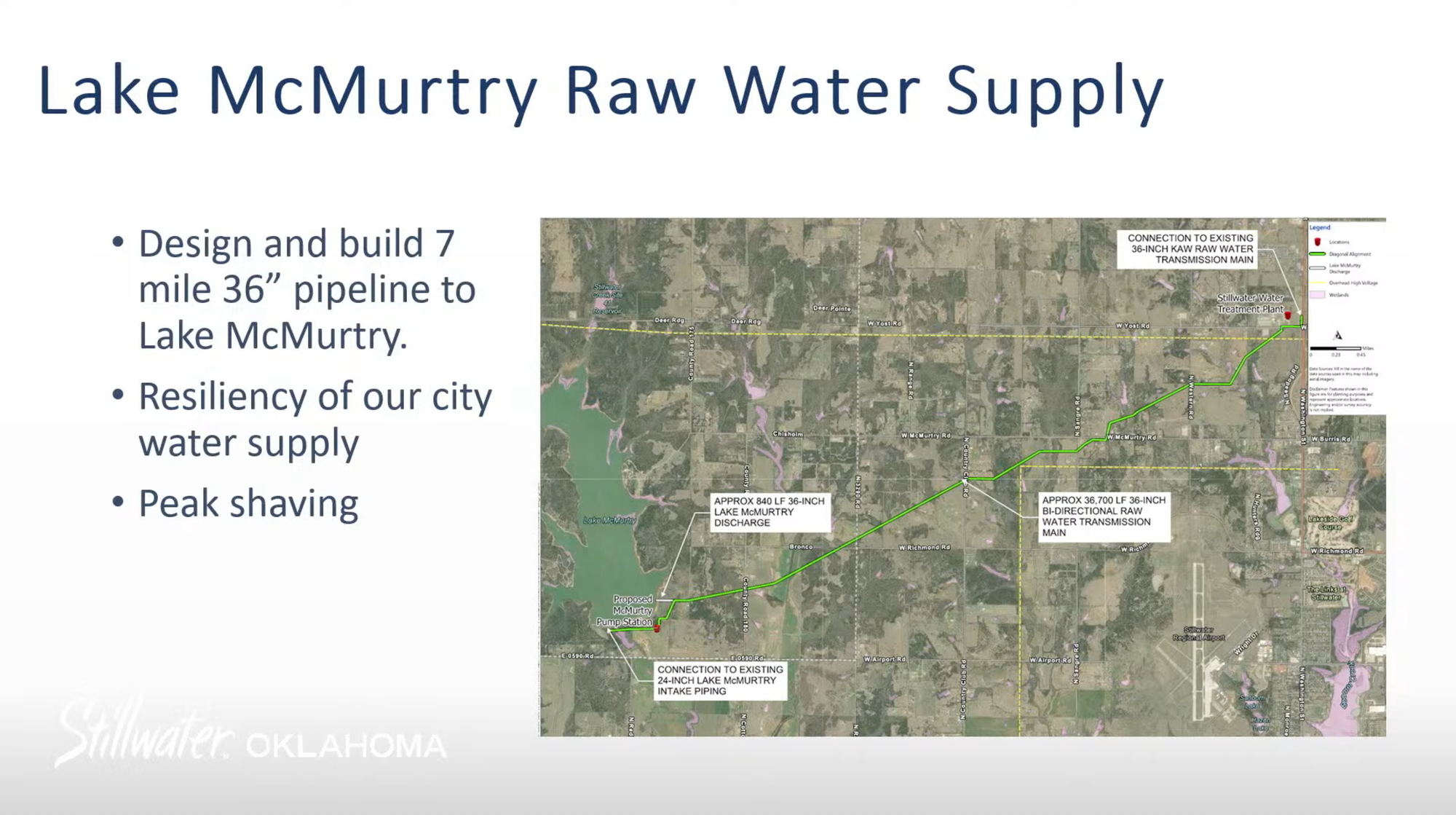
"This is a very exciting one," Humes said. "In order to do maintenance on our existing pipeline, today you can only shut down that line for about six hours and then we start to run out of water. We need this secondary source to feed water to the city."
The seven-mile pipeline to Lake McMurtry will not only provide water security but also allow for cost-effective "peak shaving" during high-demand periods.
"Our average demand is 6 to 8 million gallons per day, but it can go up to 14 as well," Humes explained. "A very cost effective way is to build a seven-mile pipeline over to Lake McMurtry where we also have water rights."
The project is expected to save ratepayers approximately $100 million compared to building a second pipeline from Kaw Lake. Design of the pipeline is 60% complete, with construction planned to begin in spring 2026 and completion expected by January 2028.
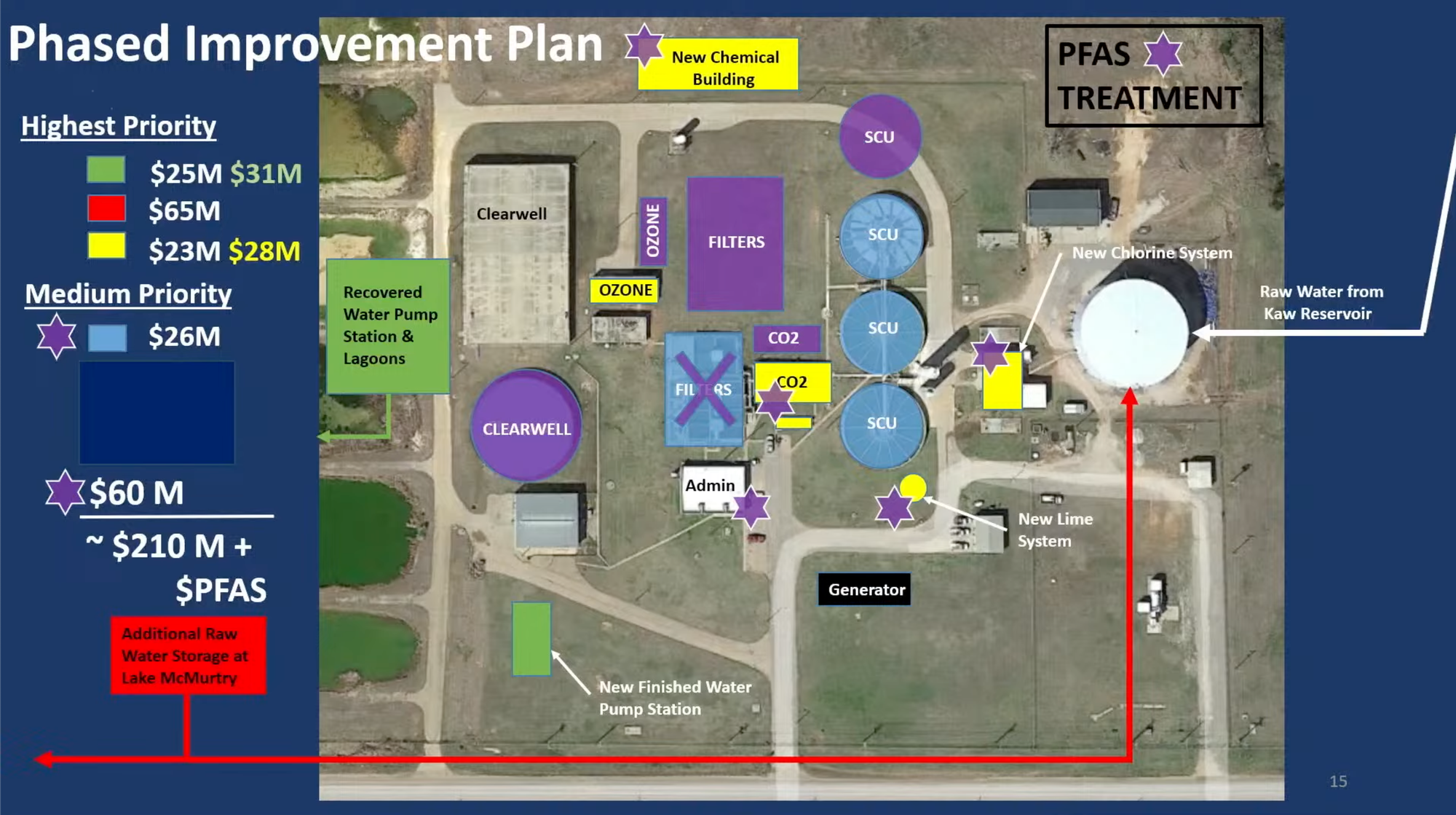
The city is also planning medium-priority projects, including solids contact unit rehabilitation, filter replacements, and a new clearwell. These projects are part of an expansion from 18 to 24 million gallons per day capacity to accommodate increased demands, including the under-construction Google data centers and a backup water agreement with Oklahoma State University.
"When you get to a place where you're 80 to 90% of your peak, you have to start planning because it takes five years to go through permitting and design and all of that," Staring said.
The city is pursuing grants and loans to fund these extensive improvements. So far, about $9.5 million in grants has been approved for different construction projects, with additional applications pending.
"Thankfully, we did the rate increases in late 2023. And those are going a long ways to help us pay back these loans," Staring said. "But this is critical needs and we're pushing through as quickly as we can."
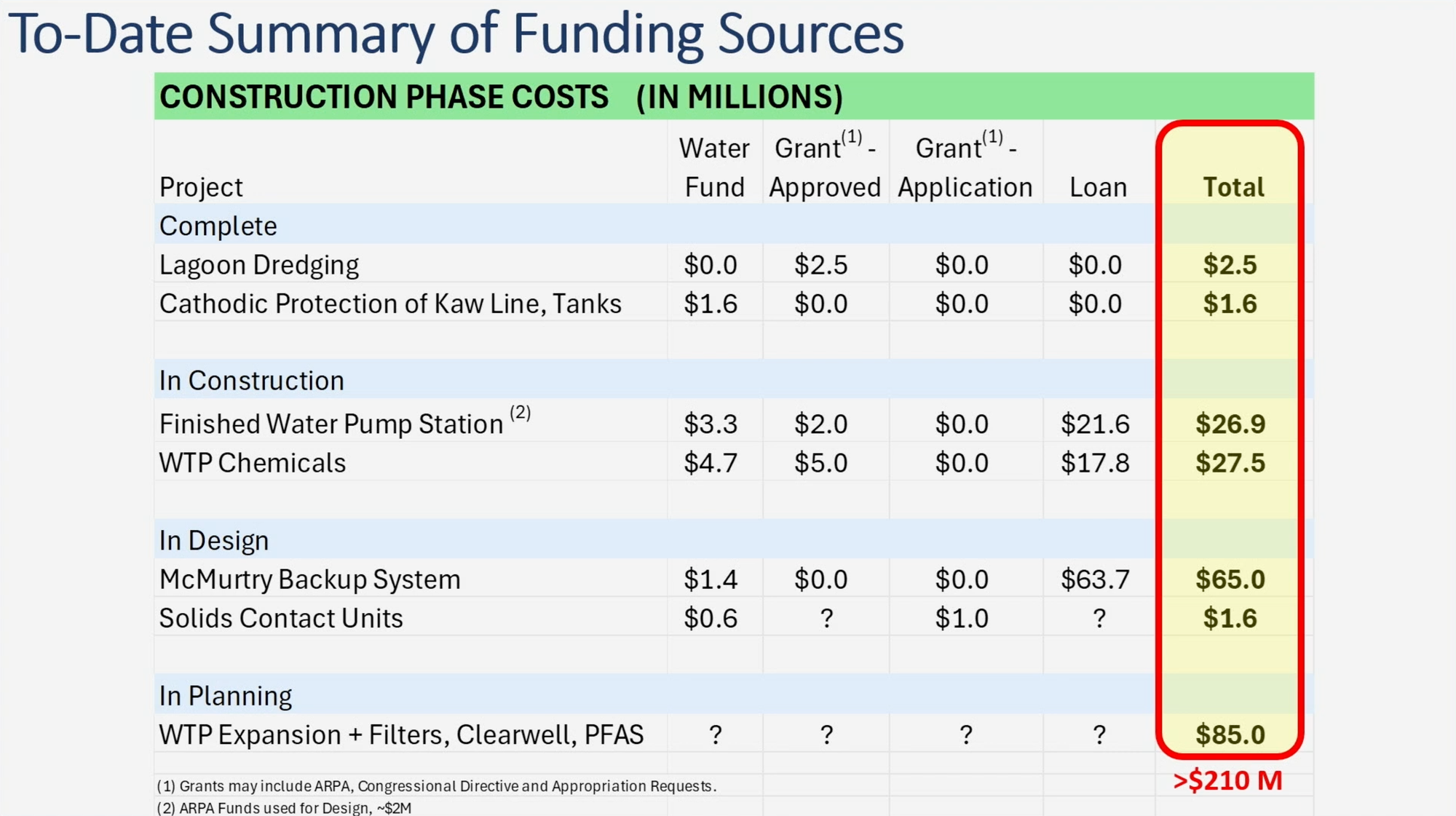
During the meeting, City Manager Brady Moore recognized Staring's contributions as she prepares to retire.
"She's an extremely loyal employee, constantly fighting for our community and our infrastructure," Moore said. "Water is her passion, it's her background. She's a professional engineer certified to do everything, and she has led our teams in all different ways here at the city."
Moore noted that while Staring is retiring, the city is "not closing the door on her possibly helping us in the future in some capacity on our water projects."
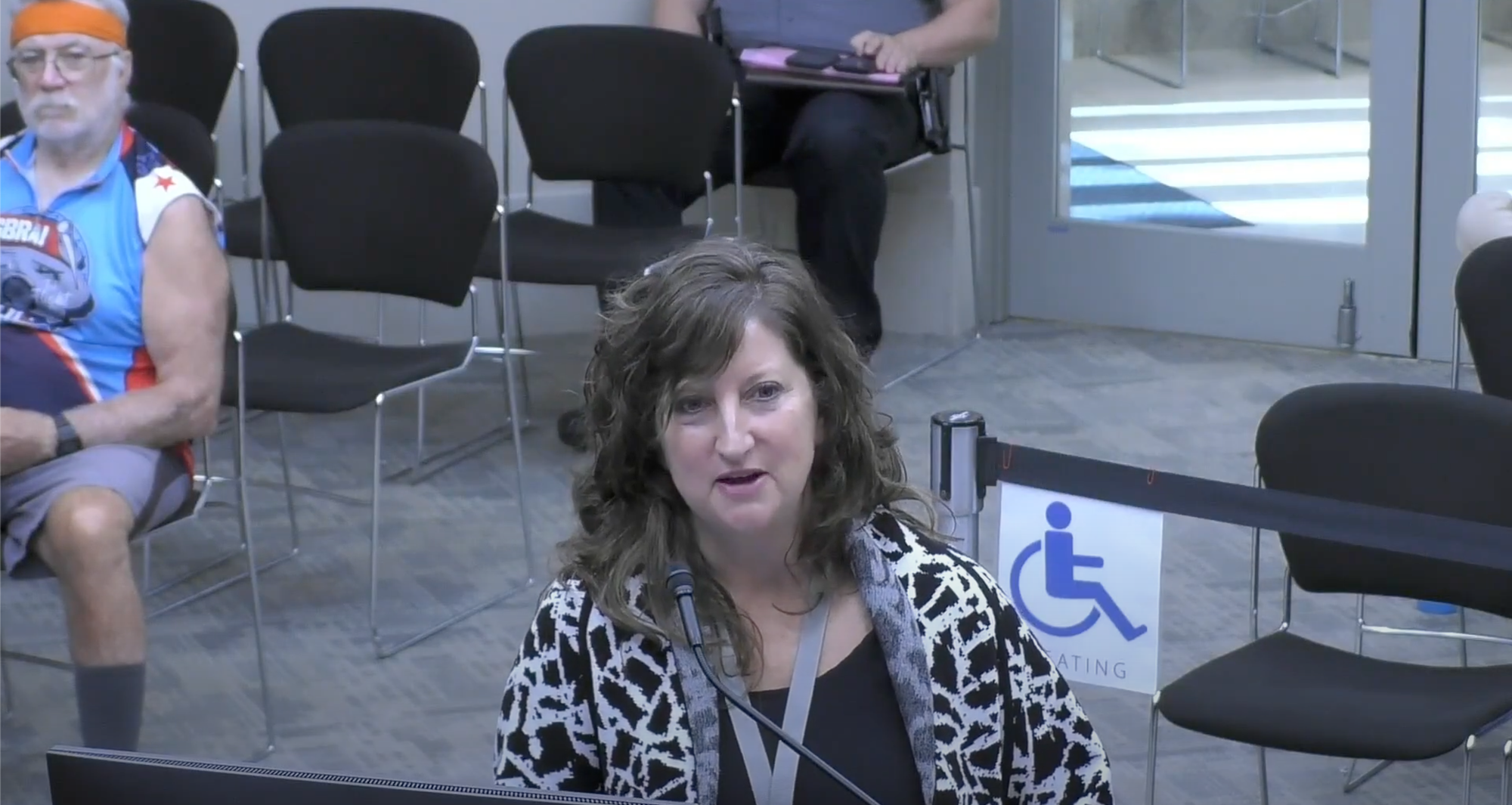
The meeting highlighted the complexity and cost of maintaining and upgrading water infrastructure. Mayor Will Joyce emphasized this point after the presentation.
"What it takes to put clean water into your sink or your bathtub or wherever you're using your clean water at home is an unbelievable amount of work and really an unbelievable amount of money to keep this stuff moving and up to date," Joyce said.
The water treatment plant expansion will also include planning for PFAS (per- and polyfluoroalkyl substances) treatment, though costs for this component have not yet been determined.
Bill Millis will lead the department following Staring's retirement at the end of the month.
📺 Watch the Stillwater Utilities Authority Meeting

